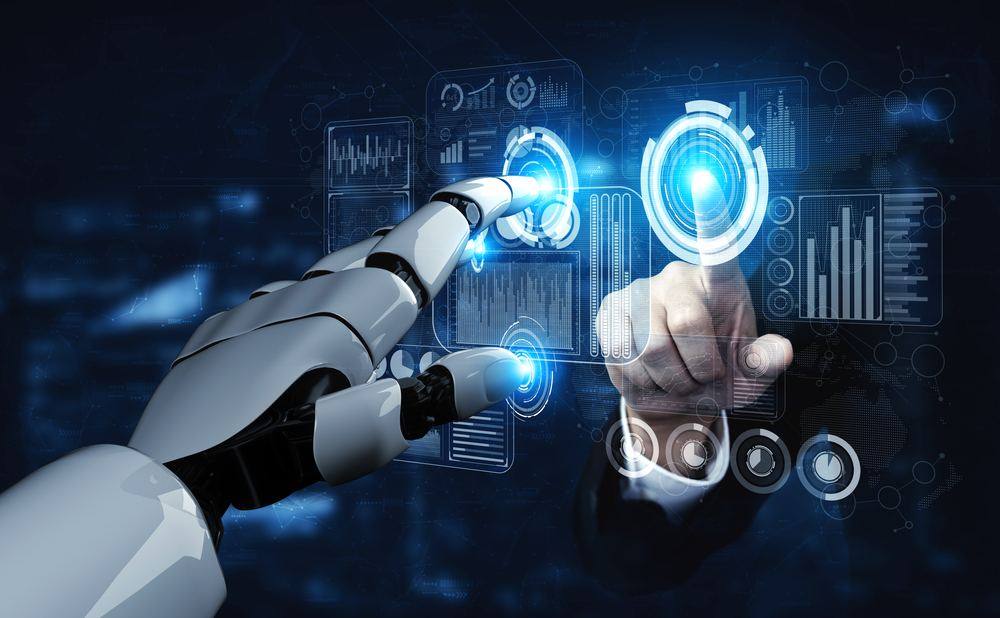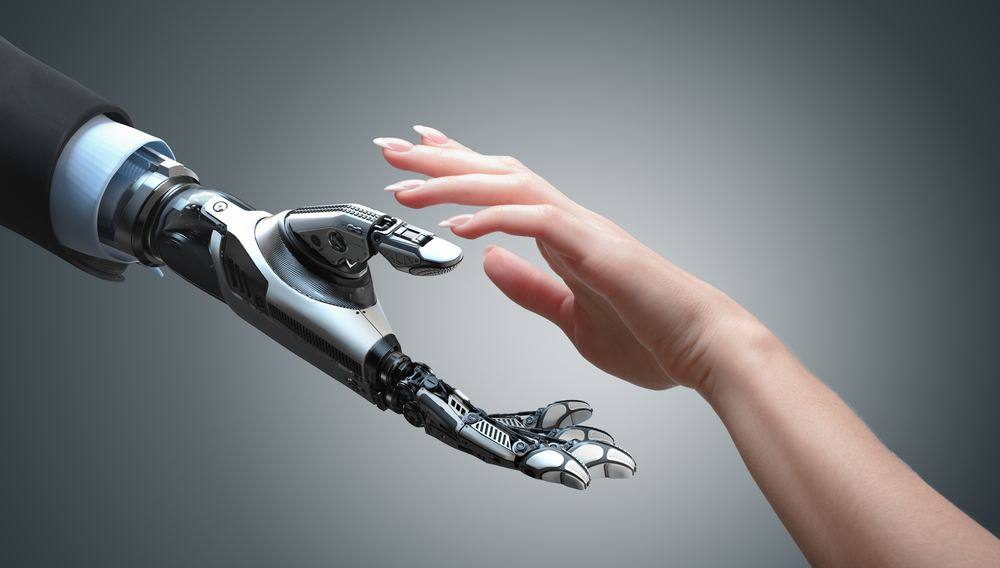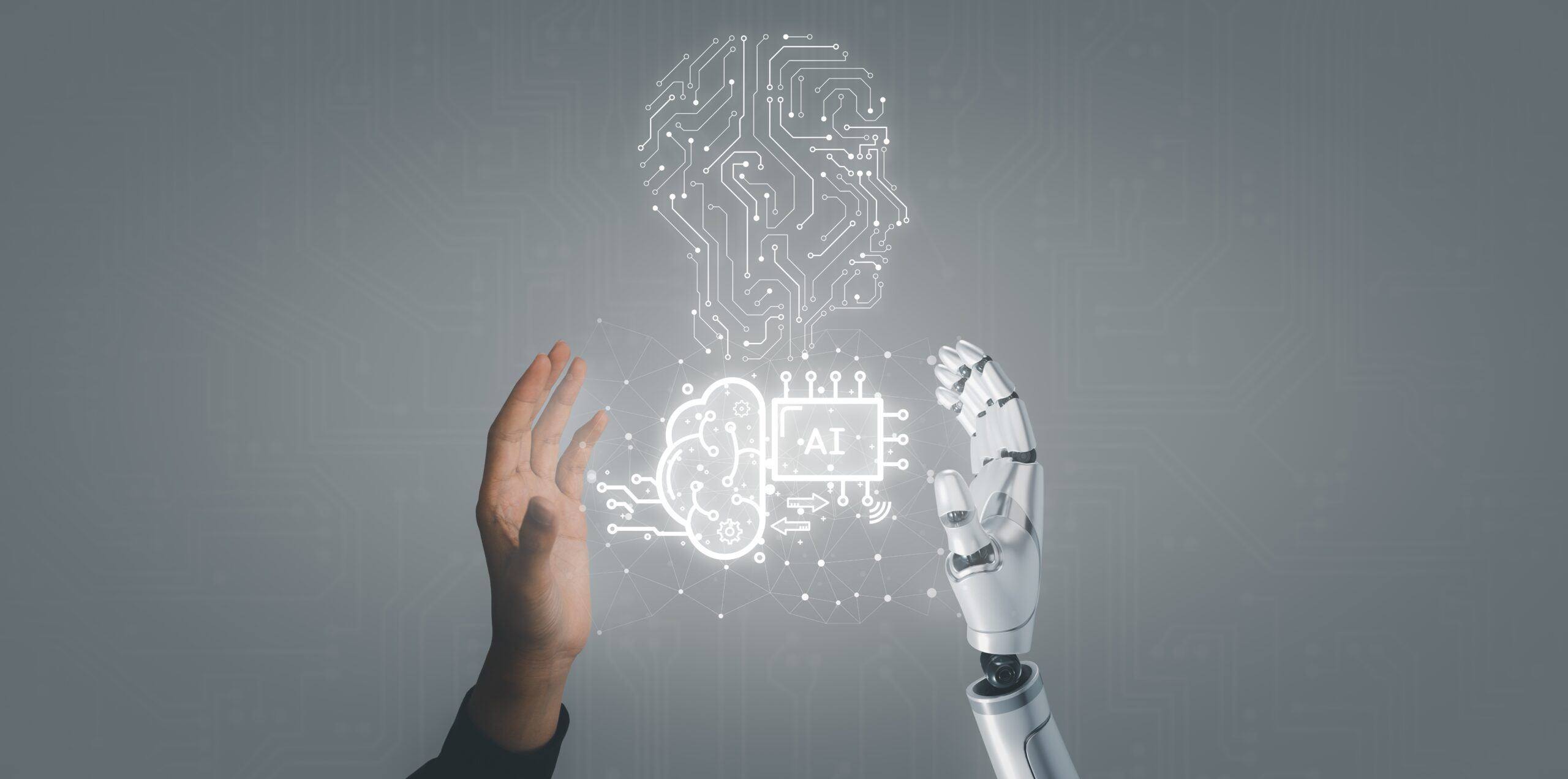How Artificial Intelligence Can Improve IT For Businesses

As technology continues to permeate all aspects of our lives, we take a look into how artificial intelligence (AI) can improve IT for businesses.
With the digital transformation in full swing, the growing number of technologies increasingly includes AI. The result, in most cases, has improved the efficiency of operations where antiquated systems fell short.
Theoretically, AI has the potential to leverage business operations and increase revenue. Whilst this may not realistically be the case for every business, understanding how to get the most from AI in your IT system does increase the likelihood that AI will make your business more profitable.
One of the most notable advantages in recent years is the integration of automated systems that are driven by artificial intelligence. On the one hand, this fact scares people that think they might lose their job – despite evidence to the contrary showing how AI provides businesses with an opportunity to upskill workers and create better jobs from the bottom up.
Rather than replacing employees, AI is generally used to support staff and perform functions that are beyond the capacity of humans. For example, AI can detect unusual activity in a computer system and analyse thousands of documents per minute.
A report by Pew Research suggests that AI will be integrated into most aspects of life. Automated technology is almost certain to become commonplace in business settings and will continue to expand in the coming decades.
What is AI?
Before we dive into discussing how artificial intelligence can improve IT for businesses, I want to discuss what AI is. At present, there are essentially two types despite the technology being used in a wide variety of ways.
The term “Artificial Intelligence” is used to describe software that is capable of performing tasks that are typically observed in humans, namely, learning, inputting, problem-solving and planning.
In a piece of software, therefore, AI can assess input data and predict a definite outcome or a series of potential outcomes. The predictive function enables software to perform a function that would ordinarily require a human to fulfil the task (i.e. data inputting).
So how does AI, learn, plan and solve problems?
The first method is known as machine learning (ML). Although this is pretty clever, it’s actually a fairly basic modality of artificial intelligence. A common use for machine learning is automated software.
ML works by identifying patterns of behaviour or processing large amounts of data. The more data AI analyses, the better able it is to perform functions efficiently.
Likewise, much like humans, the more data ML algorithms have available, the more equipped it is to predict the accurate outcome. However, artificial intelligence can improve IT for businesses, by performing operations quicker and more accurately.
For example, ML-powered software can be integrated into your business infrastructure to collect data from connected devices. Operationally, you can use the software to identify productive patterns of behaviour and less productive patterns of behaviour.
In an IT setting, the constant stream of data can inform us about devices or processes that throw up anomalies or cause a negative impact on the performance of your IT systems. This enables us to revise your infrastructure or perform proactive maintenance that prevents a system crash.
The other way artificial intelligence can improve IT for businesses is deep learning (DL). The type of AI is similar to ML but is )supposedly) capable of performing advanced functions.
Common examples of DL are translation tools, virtual assistants, voice automation, autocorrect and driverless vehicles. If you remember how useless Siri, Google Translate and autocorrect were when they first came onto the market, you can see how deep learning is improving the functioning of these tools – albeit slowly. Don’t get your hopes up about driverless cars any time soon.
Whilst machine learning typically plates, it is hoped that deep learning AI will enable businesses to innovate more quickly. In a world facing multiple crises, we need all the help we can get to find appropriate solutions.

Reduce Operational Costs
With IT driving the digital transformation, artificial intelligence can improve IT for businesses by helping enterprises to maintain a steady ship. It can also leverage revenues by expediting business processes that increase productivity whilst reducing operational costs.
During times when businesses need to reduce overheads, integrating automated software can help to perform functions that save time and money. For example, AI can assist with managing information, performing, software maintenance tasks and reducing operational friction inside your IT infrastructure.
With AI performing tasks that identify and fixes bugs, you don’t need to rely on so many IT professionals to manage your business infrastructure. Or if you’re using managed IT services, there will be less requirement to pay for maintenance and repair.
The adoption of AI in IT departments has also helped to ease the complexity of data-generated environments. When integrated correctly, you should expect to process data quicker and experience less downtime.
AI software can perform root cause analysis which identifies issues caused by recurring patterns of behaviour. This may be something as innocuous as the way two pieces of software interact with one another. This could take months for an IT professional to figure out.
Increase Efficiency
There are evidently still some areas AI needs to improve. But one function machine learning has nailed is data input and output. ML has unequivocally improved the accuracy and efficiency of typical operational procedures.
AI comes into its own by automating processes that would ordinarily take employees hours to perform. As a result, virtually every business can benefit by investing in AI to streamline tedious processes and routine tasks or semi-automating complex processes.
Take a look at just some of the ways artificial intelligence improves IT for business.
- Upload files, read the text, classify documents and file them in the correct folder
- Eliminate human error
- Analyse data and deliver predicted outcomes that enable executives to make informed decisions.
- Assess market data to identify trends or predict customer preferences
- Analyse customer data and categorise them into silos that enable you to deliver a personalised experience
- Send automated emails
- Evaluate workflows to reduce errors and standardise input
Provide Critical Insights
Today’s businesses rely on high-quality data to make informed business decisions. But the amount of data the average business collects is immense. Even then, business owners rely on experienced analysts to interpret the data to determine how they can use it to leverage the key rest of their business.
The more data a company collects, the more complex the analytical process and decision-making becomes. AI, on the other hand, can mine and compute vast volumes of data.
To be honest, the outcomes have varying degrees of accuracy, but in many cases, you should expect machine learning software to produce accurate data the more it learns about your business.
With critical insights at hand, c-suite executives and project managers are better placed to make accurate decisions more often. This can increase revenues by avoiding mistakes and maximise sales by seizing on opportunities you may not have recognised without AI assistance.

We’ve already discussed how artificial intelligence can improve IT for businesses by analysing critically. But it can be used across multiple departments including sales and marketing, accounting and HR.
For example, AI can analyse data taken from Omni-channels and quantify which customer interactions are most likely to yield a sale. The insights give your sales and marketing teams the to prioritise specific customers and targeted campaigns.
Improve Customer Experience
AI has been used to improve the customer experience on websites and in apps for several years now. Although there are still some ethical concerns lingering (such as how data is used), AI can improve IT for businesses by helping to build relationships with customers.
Chatbots are probably the most well-known format to improve customer experiences. Chatbots can quickly answer frequently asked questions that save customers time waiting for a human assistant or reading through the FAQ section themselves.
Businesses are also leveraging AI to improve customer relationship management (CRM) systems to make website experiences smoother. AI’s ability to recognise behavioural patterns enables you to set up push notifications that deliver relevant messages.
For example, an estate agent might send a push notification to remind a client they have a viewing scheduled. The customer will receive a message with the reminder that they may have otherwise forgotten. This service can be automated with your staff needing to schedule it in their diary and physically make a phone call or send a text.
AI can also be used as personal assistants to determine the mood of customers and deliver appropriate messages – whilst protecting your staff. For example, if an irate customer calls in, a voice bot can detect the level of aggravation the customer is experiencing and respond accordingly.
Strengthen Cybersecurity
Protecting your business network is a crucial area in which artificial intelligence can improve IT for businesses. With the proliferation of bad actors that bring a business to its knees, implementing AI-powered cybersecurity defences is a blessing.
AI-powered cybersecurity sounds expensive, but defending your network doesn’t have to blow your budget. The majority of hardware and cloud software come with built-in security.
Anti-virus programs are not expensive either yet have advanced ML capabilities that identify behavioural patterns. AI can detect unusual behaviour in a system such as malware that deletes or moves files.
Zero-day exploitation software can even analyse millions of events in real-time and stop potential threats immediately. These sophisticated technologies learn from patterns of data input that hackers have tried in the past and identify potential new attacks using pattern recognition software.
In an age where cybersecurity agencies are having to raise their A-game to counteract the innovations of bad actors, AI plays a pivotal role in gathering critical intelligence.
AI-powered cybersecurity software can monitor your entire IT inventory. The program runs covertly in the background to learn the behaviours of every user, registered device, and business application. This means that security alerts are immediate and potential attacks are thwarted at the gateway.
The latest solutions can even identify vulnerable points in your network, and predict where you’re most likely to be breached and how likely you are to suffer a successful attack.
With AI analysis providing such critical insights, it’s easier for IT professionals to take appropriate and adequate security measures. This can also help decision-makers decide how much budget they need to reserve for cybersecurity.
IT Support in London
As a leading IT support service provider in London, the dedicated professionals at Micro Pro have their fingers on the pulse of cutting-edge technologies.
With digital transformation driving initiatives and operations, it’s inevitable that more businesses will adopt AI-powered software to streamline operational processes, improve efficiency, and tighten network security.
That said, we recognise the potential side effects that arise when new technologies come into contact with traditional systems. AI-powered software is not always compatible with traditional business software. And that can pose problems.
Fortunately, our experienced team of IT support professionals in London has encountered hundreds of similar issues. We are confident of resolving even the most complex problems effectively in good time.
Moreover, we are no strangers to AI-powered software. We use advanced technologies including defect analysis tools that detect potential system errors before they become a problem. We can do this from remote areas as well so we can provide IT support for a distributed workforce.
Our experts can also perform efficiency analysis that measures critical business operations over a set period and provides us with the continual analysis we can use to ensure your business network is running at optimum performance.
If you’re interested to know more about how artificial intelligence can improve IT for businesses, or how our IT support team in London can leverage your IT network, contact us today and speak to a member of our knowledgable team.


